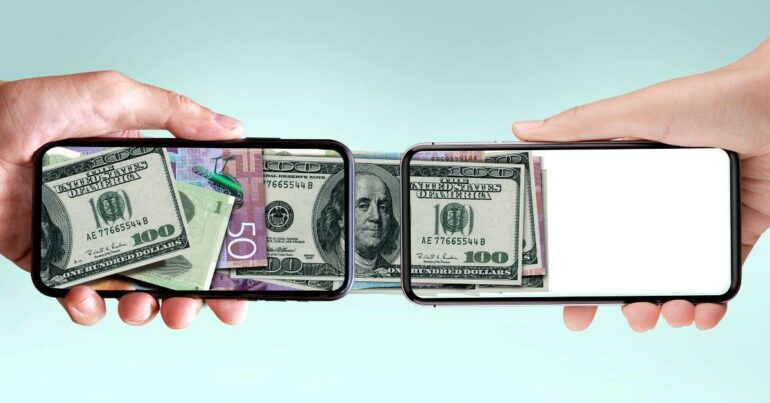
You’re sitting at home, and you get an email from your supplier that they need you to transfer a large sum of money for an order you placed.
You log in to your bank account and transfer the money, but you can’t help but feel like you’re losing much of it in the process. You think to yourself; there has to be a better way.
Sound familiar?
Currency transfers can be a pain, especially when you lose money every time you do it. But don’t worry. I’ve got some tips to help you save money on your transfers.
Whether you’re a business owner paying international suppliers or a traveler sending money to family abroad, these 8 ways will help you keep more hard-earned cash in your pocket.
You’ll be able to transfer money with confidence and ease. Let’s dive into 8 ways to save money on currency transfers.
1. Avoid using credit cards
Credit card companies often charge a higher exchange rate and a foreign transaction fee when you use a credit card for a currency transfer. This can add up quickly and cost you a significant amount of money.
When using a credit card for a currency transfer, you’ll often be charged a percentage of the transfer amount as a foreign transaction fee.
Credit card companies may also charge a currency conversion fee, a percentage of the transferred amount. These fees do add up quickly and can be avoided using a debit card or bank transfer.
Another reason to avoid using a credit card for currency transfer is that credit card companies offer lower exchange rates than other providers. This means you will get less money for your transfer when using a credit card, resulting in a lower amount being received by the recipient.
2. Compare currency
Compare the currency exchange rates offered by different providers. Check for the best deal and go for the one that offers the most favorable exchange rate.
Doing this could save a significant amount of money in the long run. It is important to note that exchange rates fluctuate daily, so it’s best to keep an eye on them and transfer your money when the rate is favorable.
This can be done by using a currency converter or visiting the websites of various providers to compare their rates. Or you can easily compare FX companies with MyCurrencyTransfer and save money on your international money transfers!
3. Look for introductory offers and regular discounts
Some providers may offer introductory offers or regular discounts to attract new customers. These offers can help you save money on your transfer, so check for them before making your decision.
Some providers may offer a waived transfer fee for the first transfer or a discounted rate for a certain period. Keep an eye out for these offers and take advantage of them when possible.
4. Check for hidden costs
Some providers may charge hidden fees, such as a fee for receiving money or canceling a transfer.
Read the fine print and ask about any potential fees before deciding. This will help you avoid surprises and ensure you’re getting the best deal possible.
It’s also important to be aware of any restrictions or limitations on the transfer, such as minimum transfer amounts or limitations on the types of currencies that can be transferred.
Do you want to know the best time to send money abroad? Read our blog on that here.
5. The total cost
It is essential you consider the total cost of a transfer, not just the exchange rate.
Some providers may have a lower exchange rate but higher transfer fees, which can make the overall cost of the transfer more expensive.
Be sure to factor in all the costs, including the exchange rate, transfer fee, and any other potential charges, to find the provider that offers the best overall value.
6. Use a money transfer service
Some companies specialize in sending money abroad, often at a lower cost than banks.
They typically charge a flat fee rather than a percentage of the transfer amount. Research and compare different companies to find the best option for you.
By the way, you can read our blog on why you should use a foreign exchange company for your currency transfers. You’ll find the information there quite thrilling.
7. Transfer money in bulk
If you frequently transfer money, consider transferring larger amounts less often. This can save you money on transfer fees, which are often charged as a percentage of the transfer amount.
You’ll be paying a lower overall fee than multiple small transfers by transferring a larger amount at once.
This strategy can be especially beneficial for small businesses or individuals that need to transfer money regularly for business or personal reasons.
Additionally, transferring money in bulk may give you access to better exchange rates or discounted fees from your provider, as they may offer incentives for larger transfers. It’s always best to check with your provider for any such offers or discounts.
8. Consider a multi-currency account
A multi-currency account allows you to hold and transfer money in multiple currencies, saving you money on exchange rates.
It also eliminates the need for multiple bank accounts in different countries. Many online banks offer multi-currency accounts with little fees.
FAQs on how to save money on currency transfers
What is the cheapest way to transfer currency?
An online currency transfer service is the cheapest way to transfer currency or money to business partners or your family abroad. This is because they are faster, cheaper, and also secure.
How can I save money by transferring money?
One of the best ways you can save money on currency transfers is by avoiding making transfers in bits. Instead, you should transfer in one bulk amount. This will help you reduce transfer costs.
What is the best currency transfer service?
If you’re looking to save money on transfers, you can compare easily online currency transfer providers on MyCurrencyTransfer.
Conclusion
Currency transfers can be costly, but by following the tips mentioned above, you can save a significant amount of money on your transfers.
Whether you’re a business owner paying international suppliers or a traveler sending money abroad, these 8 ways will help you keep more of your hard-earned cash in your pocket.
Remember to compare exchange rates, use online currency exchange providers, avoid using credit cards, time your transfer correctly, consider a multi-currency account, use a money transfer service, and transfer money in bulk.
Additionally, be aware of hidden costs and refund schemes, and always read the terms and conditions before proceeding with any transfer.
Want to find the best deal to send money abroad? You can do that by comparing FX providers here.
James Bellis
Author









